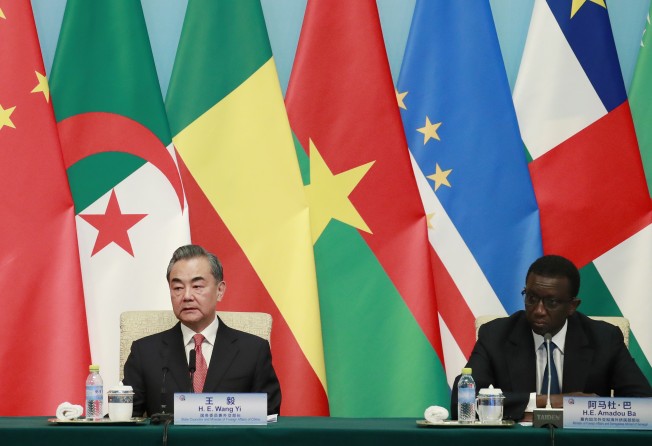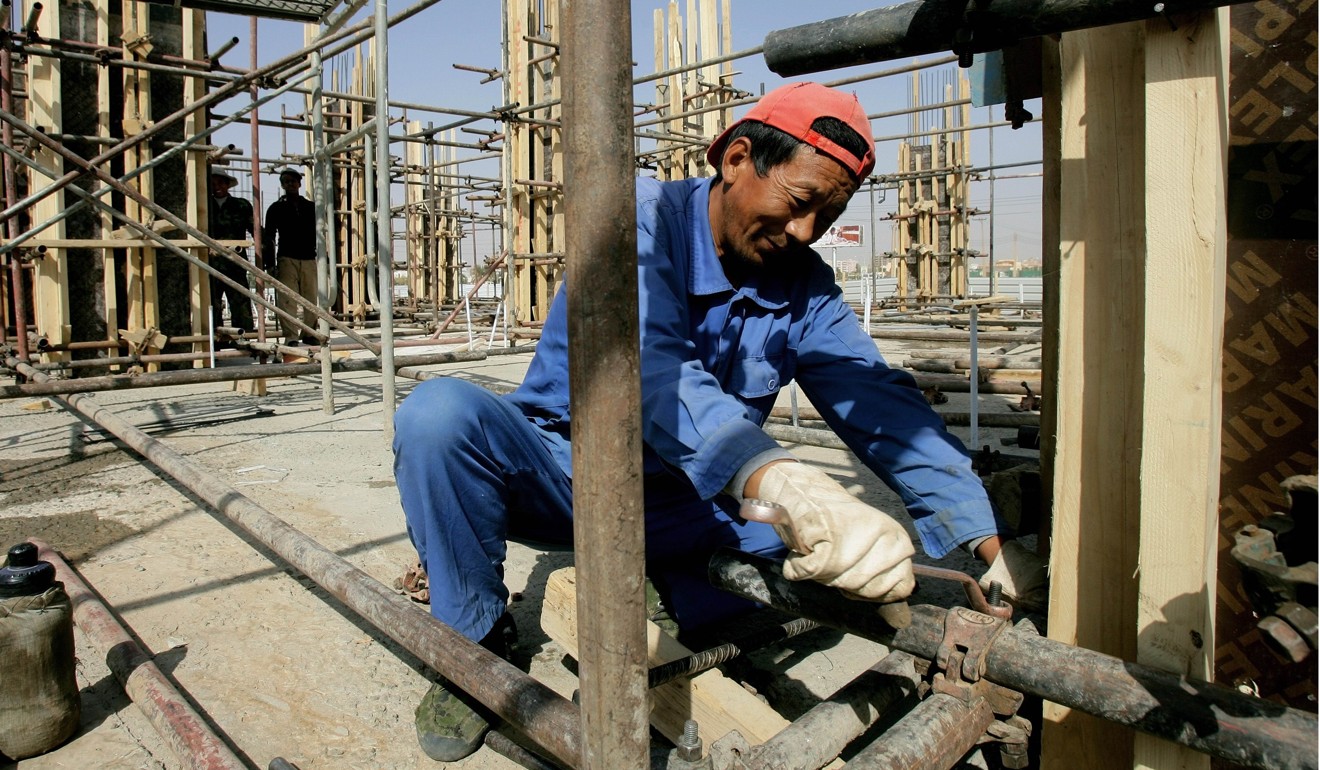Chinese Foreign Minister Wang Yi looks to boost ties with Africa on five-nation new year tour
- Official will visit Egypt, Djibouti, Eritrea, Burundi and Zimbabwe as Beijing prepares to mark 20 years of the Forum on China-Africa Cooperation
- China and African nations will push for more cooperation under the Belt and Road Initiative, ministry spokesman says

Chinese Foreign Minister Wang Yi will visit five African countries next week as Beijing’s steps up its economic and security engagement with the region amid growing criticism that its lending practices are creating debt traps.
The trip to Egypt, Djibouti, Eritrea, Burundi and Zimbabwe from Tuesday will mark China’s preparations for the 20th anniversary of the Forum on China-Africa Cooperation (FOCAC) – an initiative that has seen Beijing pour billions of dollars of aid into Africa but also drawn ire from developed nations.
Announcing the trip, China’s foreign ministry spokesman Geng Shuang said China and African nations would push for cooperation under the Belt and Road Initiative – Beijing’s multibillion-dollar plan to link China with Europe and Africa through infrastructure investment.
Wang would be following a long-held tradition that Chinese foreign ministers make Africa their first trip of the year, Geng said, a sign of how highly Beijing regards its ties to the region.
His trip comes as Beijing is on a diplomatic offensive, sending its officials overseas in a bid to convince nations to back its position on the trade war with the United States and its policies on Xinjiang and Hong Kong. The increased interest from world majors like the US and Japan in search of new markets and raw materials in Africa is also pushing Beijing to expand its trade activities on the continent.
Over the past two decades, China’s trade with Africa has grown 20-fold – surpassing the United States in 2009 – to US$204 billion in 2018, according to figures from China’s commerce ministry.
Beijing is also the largest bilateral lender to most African countries. Over the past decade, it has financed about US$143 billion worth of infrastructure projects, including ports, railways, airports, motorways, roads and dams, according to data compiled by the China-Africa Research Initiative at the Johns Hopkins University School of Advanced International Studies in Washington.
Stephen Chan, a professor of world politics at the University of London’s School of Oriental and African Studies, said the Chinese saw Africa as a rising continent.
The FOCAC and foreign ministers’ visits were regarded as events that built ties to what may yet be a “bold new Africa”, he said.
Of the countries Wang will visit, Eritrea was the one most isolated from the rest of the world.
“China will hope to make inroads there,” Chan said of the east Africa nation, which in 2018 signed a peace deal with Ethiopia, allowing the opening of its borders for the first time since 1998.
Wang’s trip to Zimbabwe should also be significant as despite being a major financial backer of the southern African country, China is reluctant to make any new funds available until Harare shows it can be more transparent in its financial dealings.
The country fell into financial disarray after the United States and European Union imposed economic sanctions as punishment for its human rights violations and decision to forcefully take land from white farmers.
“The Chinese, along with Western powers, really want to see signs of fiscal transparency and progress,” Chan said. “Behind closed doors, Beijing feels it would be foolish to throw good money after bad.”

While in Africa in late December, China’s top diplomat Yang Jiechi described the FOCAC as a major success, saying that through the forum, “China and Africa have made our voice heard on major international and regional issues”.
The success of the cooperation had motivated developed countries like the US, Japan, Russia and France to renew their interest in the resource-rich continent, he said.
David Shinn, an American diplomat and adjunct professor at the George Washington University’s Elliott School of International Affairs, said China’s relations with Africa had expanded dramatically over the past two decades, though had been showing signs of levelling off in recent years.
“The China-Africa relationship is more mature and, consequently, growing at a slower pace,” he said, adding that China was now more focused on protecting its people and commercial interests in Africa.
As a result, it had established a military base in Djibouti and increased the number of visits to the continent by its navy, he said.
“China is the second-largest supplier, after Russia, of arms to Africa and has stepped up its high-level military interaction with African personnel,” Shinn said.
“It is also working hard to increase its soft power, especially through radio, television and print media, and the availability of scholarships for African students.”
Purchase the China AI Report 2020 brought to you by SCMP Research and enjoy a 20% discount (original price US$400). This 60-page all new intelligence report gives you first-hand insights and analysis into the latest industry developments and intelligence about China AI. Get exclusive access to our webinars for continuous learning, and interact with China AI executives in live Q&A. Offer valid until 31 March 2020.